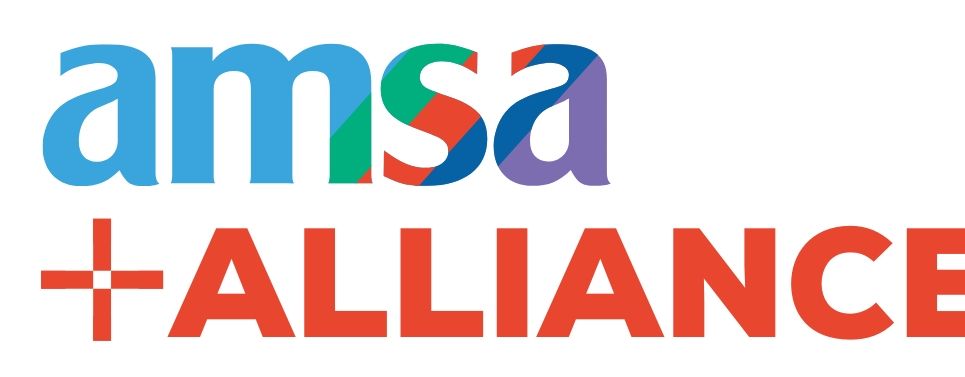Getting into medical school is about more than earning a great GPA and beating the average MCAT scores . It also requires convincing a committee of professionals that you have the personal qualities and work ethic that would make you both happy and productive in medicine.

As you prepare to fill out the the AMCAS application or to write your secondary essays , think about the work experience, extracurricular activities, awards, honors, or publications that you would like to bring to the attention of your medical schools. Here's how you can make your med school application stand out from the crowd.
1. Highlight Your Clinical Experience
The majority of successful applicants have some experience in a hospital, clinic, hospice or other health care setting.
Paid and Volunteer Experiences
Some pre-meds find part-time paid positions as emergency medical technicians (EMTs), medical scribes, or as certified nursing assistants (CNAs) while other nontraditional applicants may have had full-time careers in health care. Some volunteer with hospices or indigent care clinics. You should aim to hold a volunteer or paid position for at least six months. You will be able to speak far more effectively about why you want to become a physician, and you will know what the practice (rather than just the study) of medicine is actually like.
Clinical Shadowing
For a more in-depth experience in primary care, set up a preceptorship with a willing physician. In a preceptorship, motivated pre-meds shadow a doctor as they go about their day. You'll have the opportunity to observe the physician's activities, often in a number of different healthcare environments: office, hospital, community and occasional field trips to conventions. When it comes to clinical shadowing, diversity of experiences over quantity is most important. So, 100 hours shadowing doctors in different specialties is stronger than 500 hours with an orthopedist.
2. Show off Your Academic Chops
Research
Academic research experience is not required by most medical schools, but it is certainly valued. Research shows schools that you have an idea of what it takes to get to the research discoveries in med school. Standout research experiences for your application last a minimum of one semester, but ideally a full year, involved in lab research. One final note, medical research is essential for those applicants planning on pursuing an MD/PhD .
Study Abroad
Mission trips, volunteer spring break experiences, and semesters abroad all go a long way in developing empathy, an understanding of cultures, and the ability to navigate the world outside of your comfort zone.
TA and Tutoring Experience
Teaching or tutoring experience is always an asset to a medical school application because it suggests an ability to communicate clearly and confidently.
3. Demonstrate the Value of Your Extracurricular Activities
The extracurricular activities you choose for your application are opportunities to show off leadership skills, unique interests, and aspects of your character.
Diverse interests
Obviously, medical schools admit students who have displayed a strong aptitude for science. But they also want to recruit individuals who will bring a wide range of skills and interests to the med school class. So the minor in art, the years on the cross-country team, and the short stories you published are all valuable on your application
Commitment and follow through
Medical school is lengthy, challenging, and physically strenuous. Admissions committees want to know if you can commit to something over a long period of time. The best evidence of this is long-term commitment to research, volunteerism, or clinical work. Don't sneeze at a violin hobby, a club sport, or anything else you've pursued for several years.
Service
Altruism distinguishes a strong medical school applicant from a mediocre one. Volunteer work and community service (anything from working on a local public health campaign to joining the the Peace Corps or participating in Canada's SHAD program) speak most strongly to this quality. Many schools expect you to explain how service to others has informed your decision to become a doctor. If you are teaching in an underserved community (like working as a tutor at a Boys & Girls Club), you're also likely to develop your compassion and humanity.
Leadership and initiative
To show off your potential for leadership, evaluate your academic and extracurricular record. Look for noteworthy leadership roles in the past, such as in student government or as an editor of the student newspaper. Self-directed study, like a self-designed major or an independent study program with a celebrated professor, can also demonstrate personal initiative and passion.
The Whole Picture
Medical schools look for individuals who have a strong interest in science and a wide-ranging intellect. They want to graduate physicians who listen to their patients and use their acquired talents to heal them. There is no magic combination of scores or personal qualities that will create an unbroken path into medical school, so sell yourself, not someone else.
Want to get an edge over the crowd?
Our admissions experts know what it takes it get into med school. Get the customized strategy and guidance you need to help achieve your goals.
Med School Admission Counseling

Explore Graduate Programs for You
Explore our featured graduate schools & programs to find those that both match your interests and are looking for students like you.
Best Law Schools
Check out our complete list of 168 law schools, based on surveys of school administrators and over 17,000 students.
Search for Medical Schools
Visit our Med School Hub to explore med schools with our ‘Find Your Med School’ filtered search or visit our Med School Advice pages for info about good MCAT scores or interview question prep.

Find MBA Programs Matched to Your Interests
Explore our featured business schools to find those that are looking for students like you.


